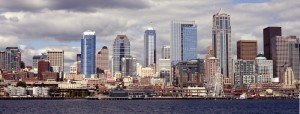Ever since leaving Canada I’ve felt an ache in my chest, pleading to be soothed by a balm of maple syrup and pancake mix and a gauze of back bacon. Though I rarely consume these things at home, my cravings seem to be a symptom of cultural identity.
Being a first-generation Canadian daughter of an English immigrant father and South African mother, I’ve chronically struggled with the concept of being “Canadian.”
My upbringing is a patchwork of Danish traditions, English diction, and family lore of taming elephants and snake pits. I’ve always hated skating; I’d rather be steamrolled by a Zamboni than watch hockey; Canada Day is an excuse to stay away from downtown. I don’t say “eh” and my home city is basically the California of Canada, with temperatures rarely dipping below -2 C, at worst.

I am the single example of Canada among my acquaintances here in Japan. Am I qualified to be an ambassador for my country? If I felt conflicted about my status before, how do I own this title?
Being temporarily divorced from Canadian culture has made me realize a unique truth about being Canadian: I’m part of a cultural quilt that thrives off the traits our cultural heritage contributes to the constantly expanding whole. My lack of what I consider “Canadian” within myself is exactly what makes me, the daughter of immigrants, a true citizen of the Great White North.
This sudden surge of nationalism has become especially apparent since the recent elections. Stephen Harper’s Conservatives have been in power since I was 11 years old. The party’s policy creating a second class of citizen based on alternate citizenship has weighed heavily on me through my formative years. I’ve always been cautious in calling myself “Canadian,” as by law I do not qualify.
The recent election, coinciding with my travels, has ignited a raw sense of nationalism within me. The change in government has provided a unfamiliar sense of hope and pride for a country I have watched teeter on the brink of militarization and classicism in the recent decade. The politics is a whole other discussion, but it remains true that this political shift has opened a hidden door that many first generation Canadians of my generation have been denied. Our foreign heritage enriches, not dilutes, the definition of “Canadian.”
